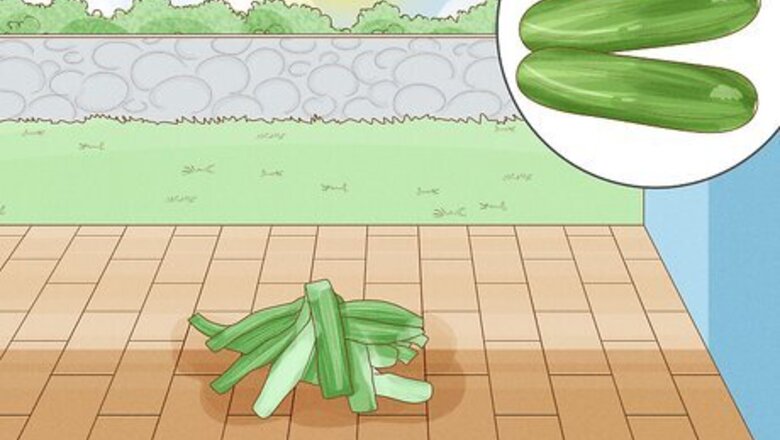
views
Deterring Bees with Natural Materials
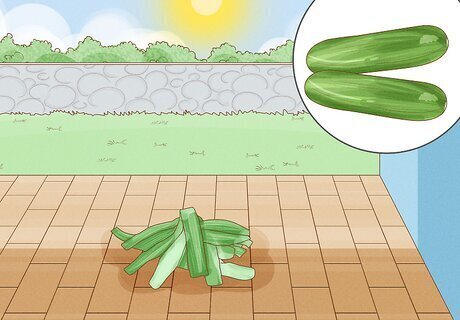
Set out cucumber peels to deter bees. Cucumber contains an acid that scares away bees and wasps. So, you can simply peel 2 or 3 cucumbers and leave the peelings around the edges of the patio. If you’re not at a house, leave the cucumber peels on an outdoor table around which you and your friends are congregating, or spread them around your picnic blanket. If you’re invested in keeping bees away from your house for a longer time, you could plant one or more cucumber plants in a garden near your house, or in a pot outdoors.
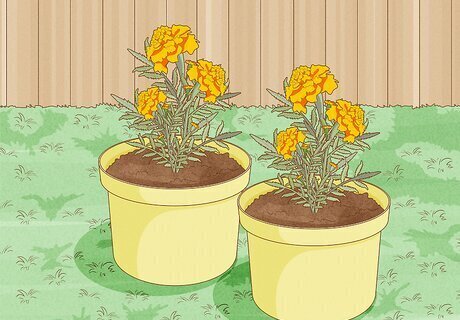
Deter bees with 1 or 2 potted marigolds. Bees are naturally repelled by marigolds, so the bright flowers will keep them from flying too close to your outdoor activities. If you’re hosting a large social event, and guests will be spread over a large area, try setting up half a dozen marigold plants around the area you’d like to keep bee-free. If you want to ensure that bees are kept away from your house for many summers, try planting marigolds in pots or planters on your patio, deck, or outside windowsill.

Use common herbs to repel bees. Bees are deterred by a number of common herbs, and will not come near areas where these herbs (and their potent smells) are present. Bee-deterring herbs include peppermint, cinnamon, vanilla, and garlic. So, consider putting a few peppermint plants or cinnamon sticks around your picnic area or outdoor patio. You can also keep bees away by chopping up a clove of garlic and letting it soak before for a few days in a glass of water. Then, when you’re going to spend time outside, set the glass of garlic water nearby.
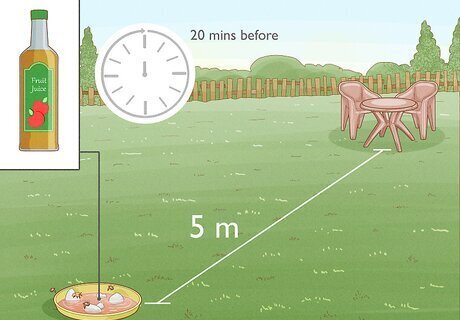
Make a bowl of “bee bait.” To keep bees away from you and your guests outside, use a bowl of sweet-smelling liquid to draw the bees’ attention. Pour a generous amount of soda, maple syrup, orange juice, or fruit juice (of any variety) into a bowl, and set this about 5 yards (5 m) (4.6 m) away from your picnic or dinner location. Set the “bait” about 20 minutes before you and your guests gather outside.
Bee-Proofing Your Eating Area

Choose a picnic location away from areas that attract bees. It goes without saying, of course, that you shouldn’t have a picnic near a visible bee hive, whether it’s located in a tree or on the ground. Avoid setting up near other locations where bees gather, too. These include: Trash cans. Tall grass (which often contains ground nests). Vacant sheds. Old, unused playgrounds.
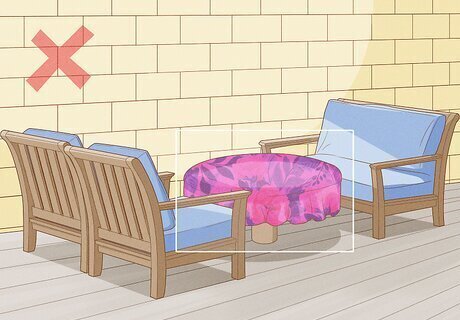
Avoid displaying bright-colored floral patterns. If you’re planning to set down a tablecloth for a patio dinner, make sure that the material has a muted color and a non-floral pattern. Bees will be drawn in by anything with the appearance of flowers, even if it’s an artificial material.
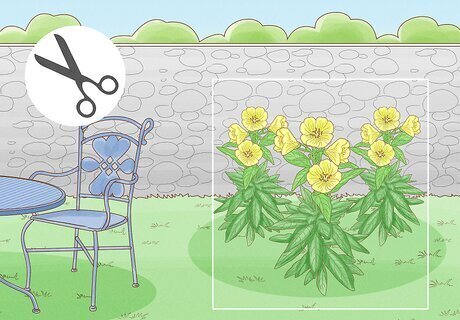
Remove any flowers near your dining area. Since bees are natural pollinators, they will be likely to gather near large, bright flowers. If you have potted flowers on or near your patio, remove these before a party or social gathering. If you’re picking a location for a picnic, avoid eating near large displays of flowers, whether they’re planted or naturally occurring. Bees are more attracted to some flowers than others. They’re most likely to investigate wildflowers, along with honeysuckle, goldenrod, and lavender. Bees also like several herbs, including oregano, thyme, and chives.
Avoiding Attracting Bees with Food
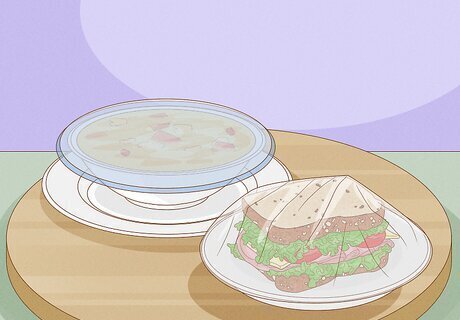
Keep your food sealed. Bees will be able to smell open containers of food, and will come buzzing in to investigate. To avoid attracting bees, keep food covered as much as possible. Even if you’re serving a full meal, keep the food in sealed Tupperware containers or serving dishes covered with plastic wrap. Alternately, keep all of the food indoors. Asking guests to fill their plates inside and then step outside to eat may be a minor inconvenience, but it will decrease the number of bees you encounter.

Avoid serving sweet or pungent-smelling food. Many foods that humans find pleasant smelling will also smell good to bees. In order to avoid drawing bees to your event with the food you serve, try to eat mostly foods with bland odors. Unfortunately, this means that you’ll need to avoid some favorite picnic and patio-dinner foods, including: Barbeque (especially with a sweet sauce). Salmon. Fried chicken. Soda.
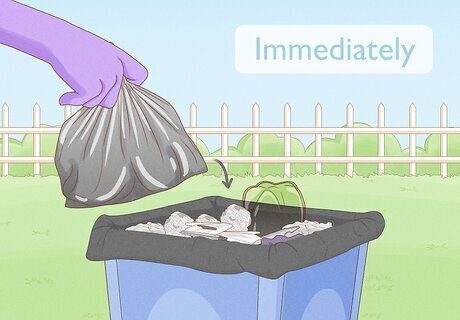
Throw trash away immediately. Bees are attracted primarily to food smells, and the smell of garbage draws them in. If you’re having a picnic or outdoor dinner party, be sure to throw garbage away as soon as possible. Place it into a trash can with a secure lid (to lock in the smell) or a dumpster. If you leave bags of pungent-smelling garbage within a few feet of your meal, you’re all but guaranteed to attract bees.
Keeping Bees Away from Your Body
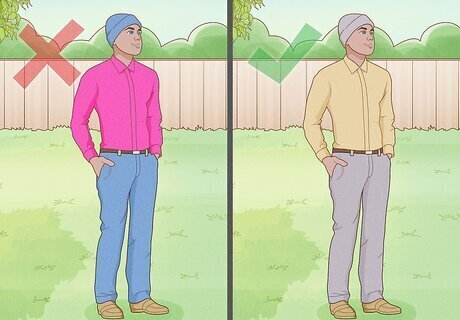
Refrain from wearing bright colors or floral patterns. Bees commonly confuse bold, bright colored clothing (especially colors like red, yellow, purple, and green) for flowers. The bees will also be more attracted to clothing that has a floral pattern, for similar reasons. Dressing in muted tones will attract fewer bees.
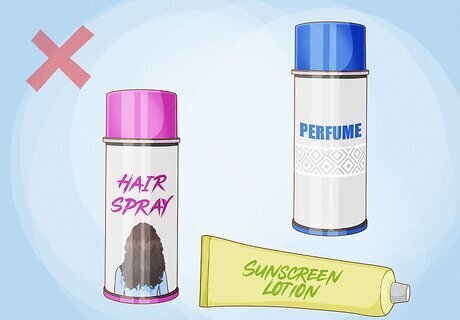
Do not wear perfume or other scented cosmetics. Bees are drawn to areas—and to people—based mostly on how they smell. Scented cosmetics like perfume or cologne, sunscreen lotion, aftershave, and hair sprays or gels will attract bees if the products have been applied in large quantities. If you know you’ll be outdoors for all or part of a day, skip the perfume or cologne and opt for un-scented hair products.
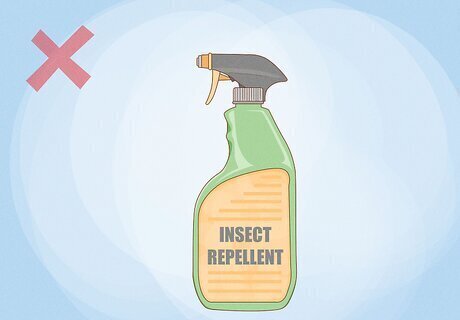
Don’t rely on insect repellent to keep bees away. Insect repellant is great at keeping gnats, flies, and mosquitos away from your skin. Unfortunately, most insect repellant sprays do not work to deter bees. Similarly, insect-repellant candles (like Citronella) probably won’t keep bees away either. Unlike mosquitos and gnats, bees don’t seem to mind the smell of the candles.
















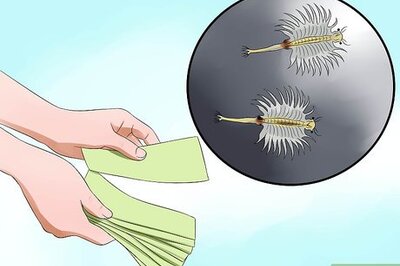

Comments
0 comment